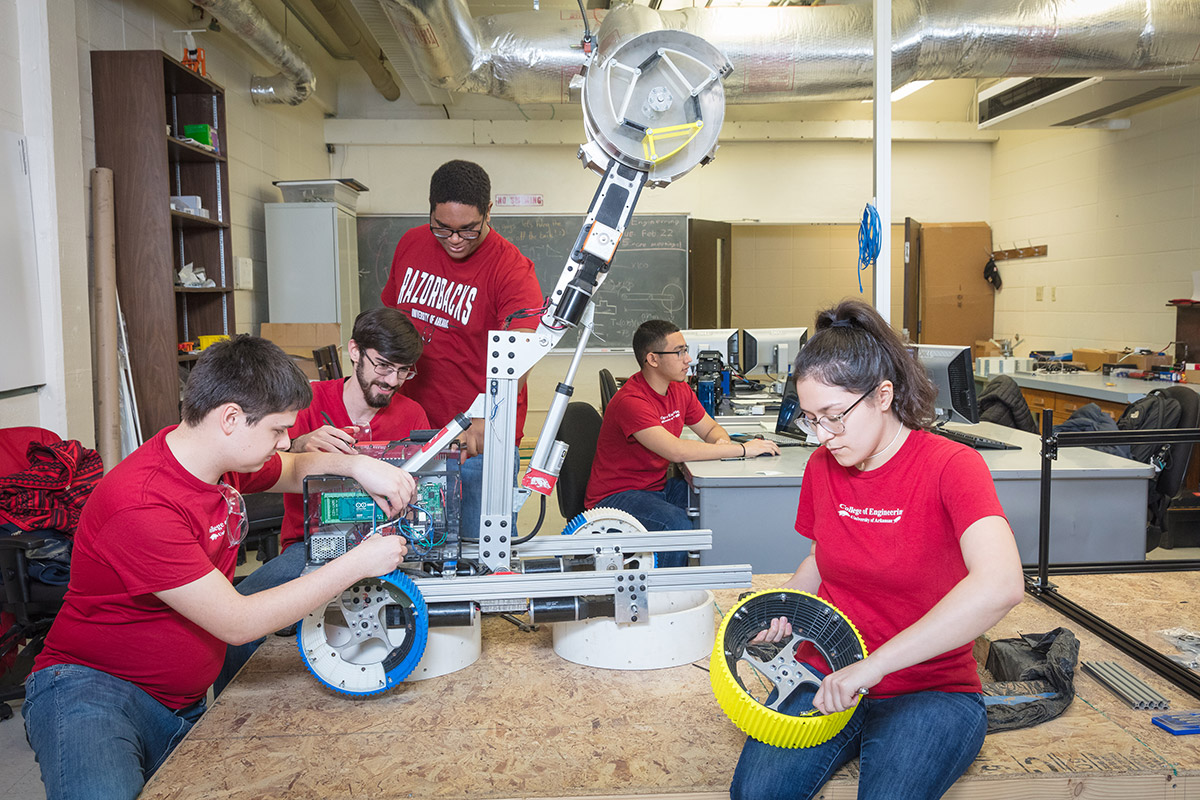Mechanical Engineering
Mechanical engineers design, analyze, and improve mechanical systems across industries
like automotive, aerospace, energy, and manufacturing. They apply expertise in physics,
mathematics, and materials science, using CAD software and simulations to optimize
designs for functionality and efficiency. Involved in every product stage from design
to maintenance, they collaborate with teams to address challenges in mechanics, thermodynamics,
and fluid dynamics, aiming to create safer, sustainable, and advanced products.
Degrees Offered
Student to Faculty Ratio
Students Enrolled (2024)
Undergrad Degrees Awarded (2023)
Grad Degrees Awarded (2023)
Research Expenditures
Career Outlook
Our personalized approach not only enhances your skills and knowledge but also ensures
that your education is relevant and fulfilling, positioning you for success in your
engineering career.
What You Can Do
- Manufacturing Engineer
- Engineering Consultant
- Design Engineer
- Aerospace Engineer
Industries You Can Work In
- Aerospace
- Transportation
- Manufacturing & Materials
- Consulting
- Design
Research Areas
Aerospace
Design
Energy
Fluids
Manufacturing
Materials
Mechanics and Controls
Micro/Nano
Our Faculty and Staff
Department News

Student Organizations
- American Institute of Aeronautics and Astronautics - Arkansas Student Chapter (Region IV)
- American Society of Mechanical Engineers (ASME) Student Section
- American Society of Heating, Refrigerating, and Air-Conditioning Engineers (ASHRAE)
- Pi Tau Sigma - Mechanical Engineering Honor Society
- Society of Automotive Engineers (SAE)